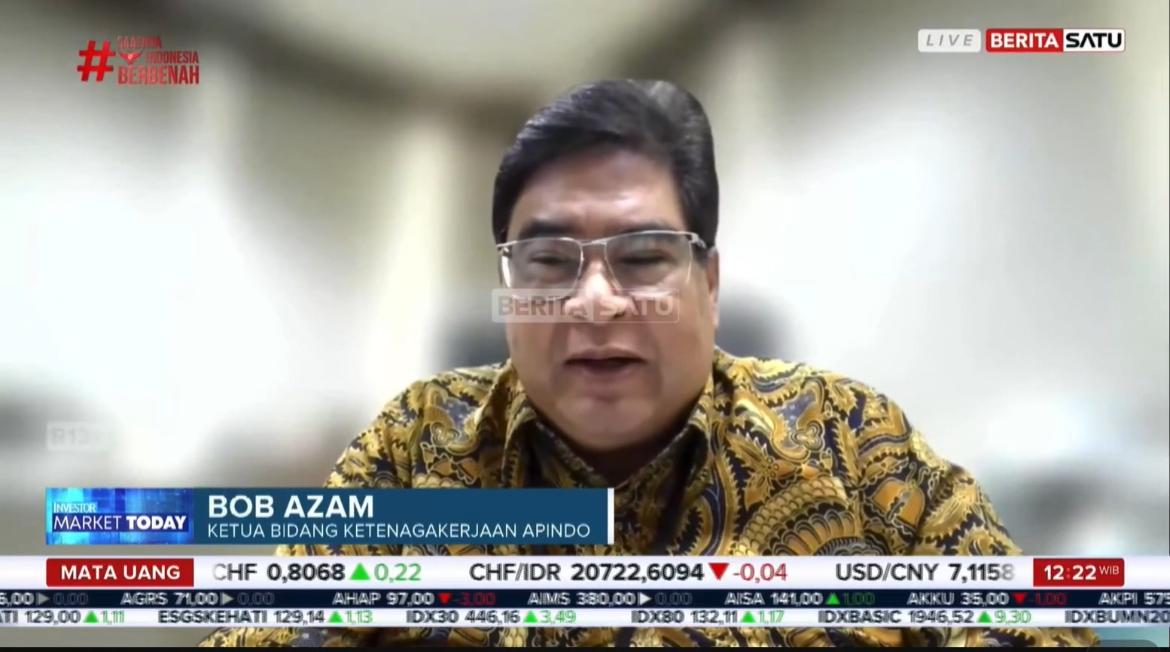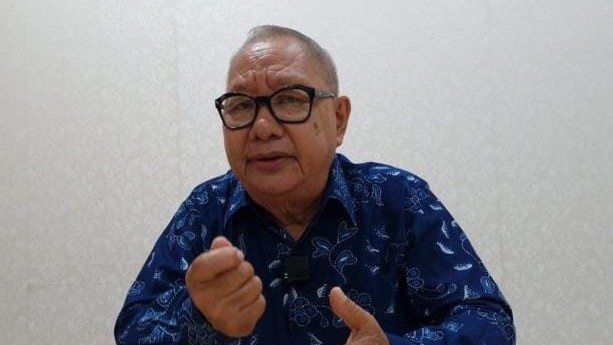APINDO Highlights the Dynamics of Wage Determination
Friday, 21 November 2025
Bob Azam, Head of the Employment Division at APINDO, appeared as a speaker at the Investor Market Today LIVE event themed “Finding a Fair Wage Without Undermining Business Viability” on Thursday (20/11/2025). In his session, he highlighted the recurring annual tensions surrounding minimum wage adjustments.
Bob explained that for more than a decade, wage discussions have consistently been marked by heightened tensions, especially toward the end of the year. Demonstrations and competing interests, he noted, further exacerbate uncertainty in the investment climate. “Investment requires predictability. Economic risks can be managed, but uncertainty in wage-setting discourages investors,” he stressed.
He pointed out that wage regulations have changed four times over the past ten years and are now entering a fifth revision. Such frequent shifts, he argued, make it difficult for businesses to develop long-term plans, including workforce strategies and contractual arrangements. APINDO hopes that future wage-determination mechanisms will be more stable and predictable.
Responding to labor groups’ proposal for a 6–10 percent increase in the minimum wage (UMP), Bob emphasized that adjustments should follow a data-driven formula rather than arbitrary demands. With inflation falling short of 3 percent, he argued that disproportionate increases are counterproductive for many businesses struggling to sustain operations.
Bob also reminded that the UMP serves as a threshold representing the minimum standard for a decent living. However, many companies—particularly small and medium enterprises—are already unable to comply with the current UMP levels.
This inability, he noted, has pushed many business actors out of the formal sector and into the informal economy, which now accounts for more than 60 percent of the national labor structure. “The threshold for entering the formal sector is too high, especially in terms of wages. This hampers industrial growth and weakens our competitiveness,” he explained.
He underscored that the ideal solution is not merely raising the UMP, but strengthening bipartite negotiations at the enterprise level. This would allow companies with sufficient capacity to provide higher wages, while those under financial pressure can continue operating without being burdened by regulations misaligned with their actual conditions.
“The parties who best understand a company’s condition are the employers and their workers. Therefore, bipartite negotiations must be the key,” he concluded.
APINDO reaffirmed its commitment to promoting wage policies that are fair, predictable, and supportive of formal-sector growth, thereby ensuring a conducive business environment and sustained job creation.









